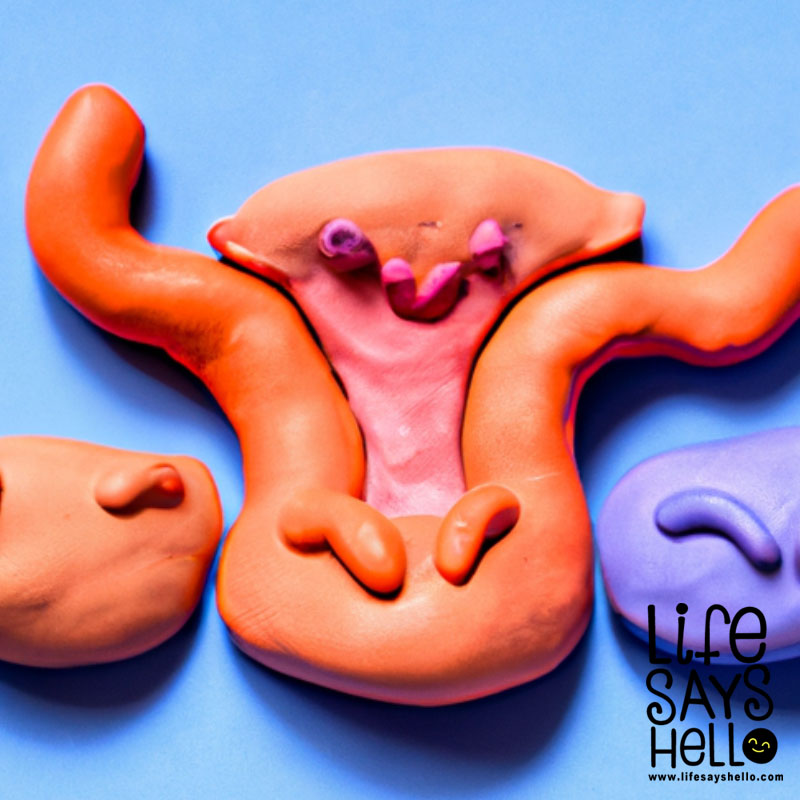Understanding UTIs: How Long They Last, Treatments, and Prevention Tips

If you've ever experienced the discomfort of a urinary tract infection (UTI), you're likely wondering how long it lasts and what you can do to prevent them in the future – and we've got you covered with this comprehensive guide.
Introduction
Urinary tract infections (UTIs) are a common and uncomfortable health issue that affects millions of people each year. Understanding the duration, treatment, and prevention of UTIs is crucial for maintaining your overall well-being. In this comprehensive guide, we'll explore the different types of UTIs, how long they typically last, treatment options, and tips for preventing future infections. So, let's dive in and learn everything you need to know about UTIs.
Understanding UTIs
A urinary tract infection, or UTI, is an infection that occurs in any part of the urinary system, including the kidneys, bladder, ureters, or urethra. UTIs are caused by bacteria, most commonly Escherichia coli (E. coli), which usually enter the urinary tract through the urethra and begin to multiply. This can lead to inflammation and discomfort, as well as more severe complications if left untreated.
There are two main types of UTIs: uncomplicated and complicated. Uncomplicated UTIs are the most common and affect the lower urinary tract (bladder and urethra). Complicated UTIs, on the other hand, are more severe and can involve the upper urinary tract (kidneys and ureters), as well as other underlying health issues that make treatment more challenging.
Duration of UTIs
The duration of a UTI can vary depending on whether it is an uncomplicated or complicated infection. Here's what you can expect for each type:
Uncomplicated UTIs
Uncomplicated UTIs are the most common type and generally last for about three to seven days. Even without treatment, your body may be able to fight off the infection within this timeframe. However, it's essential to seek medical attention and treatment, as untreated UTIs can lead to more severe complications and prolonged symptoms.
With proper treatment, such as antibiotics, the symptoms of an uncomplicated UTI usually begin to improve within a couple of days. It's crucial to complete the full course of antibiotics prescribed by your healthcare provider, even if your symptoms improve before finishing the medication, to ensure the infection is entirely cleared.
Complicated UTIs
Complicated UTIs can last for weeks or even months if left untreated. These infections are more severe and challenging to treat, often due to underlying health issues, such as diabetes, pregnancy, or a weakened immune system. Additionally, complicated UTIs can involve the upper urinary tract, increasing the risk of kidney damage and other serious complications.
The duration of a complicated UTI can vary significantly depending on the severity of the infection and the individual's overall health. In some cases, a more extended course of antibiotics or even hospitalization may be required to effectively treat the infection.
Symptoms and Relief
UTIs can cause a variety of uncomfortable symptoms, which can range from mild to severe. Common symptoms of a UTI include:
- A strong, persistent urge to urinate
- A burning sensation when urinating
- Passing small amounts of urine frequently
- Cloudy, dark, bloody, or strong-smelling urine
- Pain or pressure in the lower abdomen or back
- Feeling tired or shaky
- Fever or chills (a sign that the infection may have reached the kidneys)
For most uncomplicated UTIs, symptom relief typically occurs within a couple of days after starting antibiotic treatment. However, if the UTI is due to a kidney infection, it may take up to 14 days to experience relief from symptoms. It's essential to follow your healthcare provider's recommendations and complete the full course of antibiotics to ensure the infection is entirely cleared and prevent recurrence.
Treatment Options
Antibiotics are the primary treatment option for UTIs. The type and duration of antibiotic treatment will depend on the severity of the infection, the specific bacteria causing the infection, and the individual's overall health.
Antibiotic Treatment for Uncomplicated UTIs
For uncomplicated UTIs, a short course of antibiotics, typically lasting three to seven days, is usually prescribed. Common antibiotics used for uncomplicated UTIs include:
- Trimethoprim-sulfamethoxazole (Bactrim, Septra)
- Fosfomycin (Monurol)
- Nitrofurantoin (Macrobid, Macrodantin)
- Ciprofloxacin (Cipro)
- Levofloxacin (Levaquin)
It's crucial to take the antibiotics exactly as prescribed and to complete the full course of treatment, even if your symptoms improve before finishing the medication. This helps to ensure that the infection is completely cleared and reduces the risk of recurrence or antibiotic resistance.
Antibiotic Treatment for Complicated UTIs
Complicated UTIs may require a more extended course of antibiotics, sometimes lasting up to 14 days or longer. In some cases, hospitalization and intravenous (IV) antibiotics may be necessary, especially if the infection has spread to the kidneys or other parts of the body. The specific antibiotic treatment plan for a complicated UTI will depend on the individual's overall health, the severity of the infection, and the type of bacteria causing the infection.
Prevention Tips
While UTIs can be uncomfortable and disruptive, there are several steps you can take to lower your chances of getting a UTI in the first place. Here are some helpful prevention tips:
- Drink plenty of fluids: Staying well-hydrated can help flush out bacteria from your urinary tract, reducing the risk of infection.
- Wipe from front to back: After using the toilet, always wipe from front to back to prevent bacteria from the anus from entering the urethra.
- Urinate after sex: Emptying your bladder after sexual activity can help flush out any bacteria that may have been introduced during intercourse.
- Avoid irritating products: Scented soaps, bubble baths, and feminine hygiene sprays can irritate the urethra and increase the risk of infection. Opt for unscented, gentle products instead.
- Wear breathable underwear: Choose underwear made of breathable materials, such as cotton, to help keep the area around the urethra dry and less hospitable to bacteria.
- Don't hold in urine: When you feel the urge to urinate, don't hold it in for long periods, as this can allow bacteria to multiply in the urinary tract.
Conclusion
Understanding the duration, treatment, and prevention of UTIs is essential for maintaining your overall health and well-being. Uncomplicated UTIs typically last for about three to seven days, while complicated UTIs can last for weeks or even months if left untreated. Antibiotics are the primary treatment option for UTIs, and it's crucial to follow your healthcare provider's recommendations and complete the full course of treatment.
By following the prevention tips outlined in this guide, you can lower your chances of getting a UTI and enjoy a healthier, more comfortable life. If you suspect you have a UTI, don't hesitate to seek medical attention for proper diagnosis and treatment.




Comments